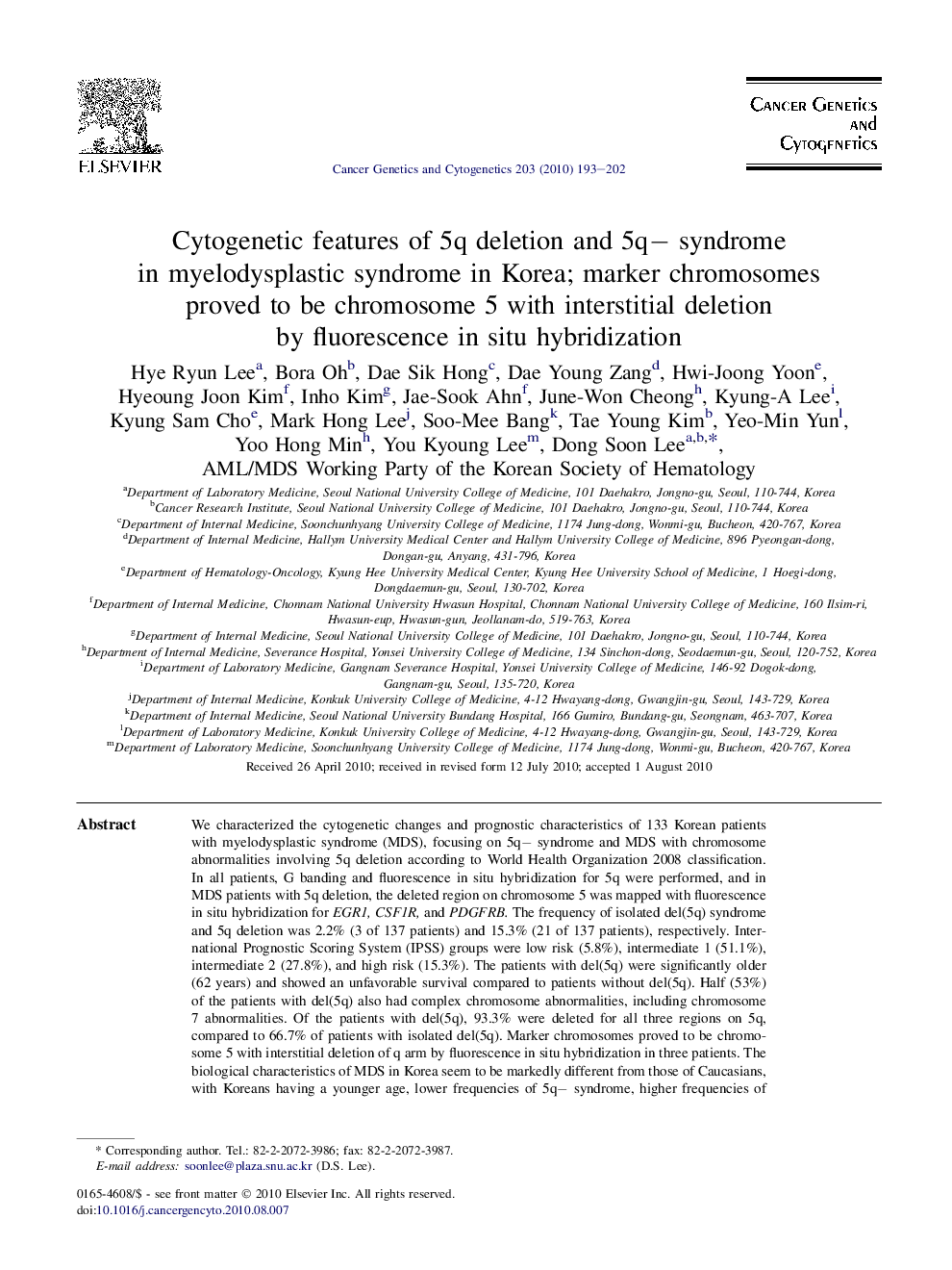| Article ID | Journal | Published Year | Pages | File Type |
|---|---|---|---|---|
| 2110556 | Cancer Genetics and Cytogenetics | 2010 | 10 Pages |
We characterized the cytogenetic changes and prognostic characteristics of 133 Korean patients with myelodysplastic syndrome (MDS), focusing on 5q− syndrome and MDS with chromosome abnormalities involving 5q deletion according to World Health Organization 2008 classification. In all patients, G banding and fluorescence in situ hybridization for 5q were performed, and in MDS patients with 5q deletion, the deleted region on chromosome 5 was mapped with fluorescence in situ hybridization for EGR1, CSF1R, and PDGFRB. The frequency of isolated del(5q) syndrome and 5q deletion was 2.2% (3 of 137 patients) and 15.3% (21 of 137 patients), respectively. International Prognostic Scoring System (IPSS) groups were low risk (5.8%), intermediate 1 (51.1%), intermediate 2 (27.8%), and high risk (15.3%). The patients with del(5q) were significantly older (62 years) and showed an unfavorable survival compared to patients without del(5q). Half (53%) of the patients with del(5q) also had complex chromosome abnormalities, including chromosome 7 abnormalities. Of the patients with del(5q), 93.3% were deleted for all three regions on 5q, compared to 66.7% of patients with isolated del(5q). Marker chromosomes proved to be chromosome 5 with interstitial deletion of q arm by fluorescence in situ hybridization in three patients. The biological characteristics of MDS in Korea seem to be markedly different from those of Caucasians, with Koreans having a younger age, lower frequencies of 5q− syndrome, higher frequencies of complex cytogenetic abnormalities including del(5q), and poorer prognosis. We infer that additional chromosome abnormalities contribute to the adverse prognostic impact in patients with del(5q).
